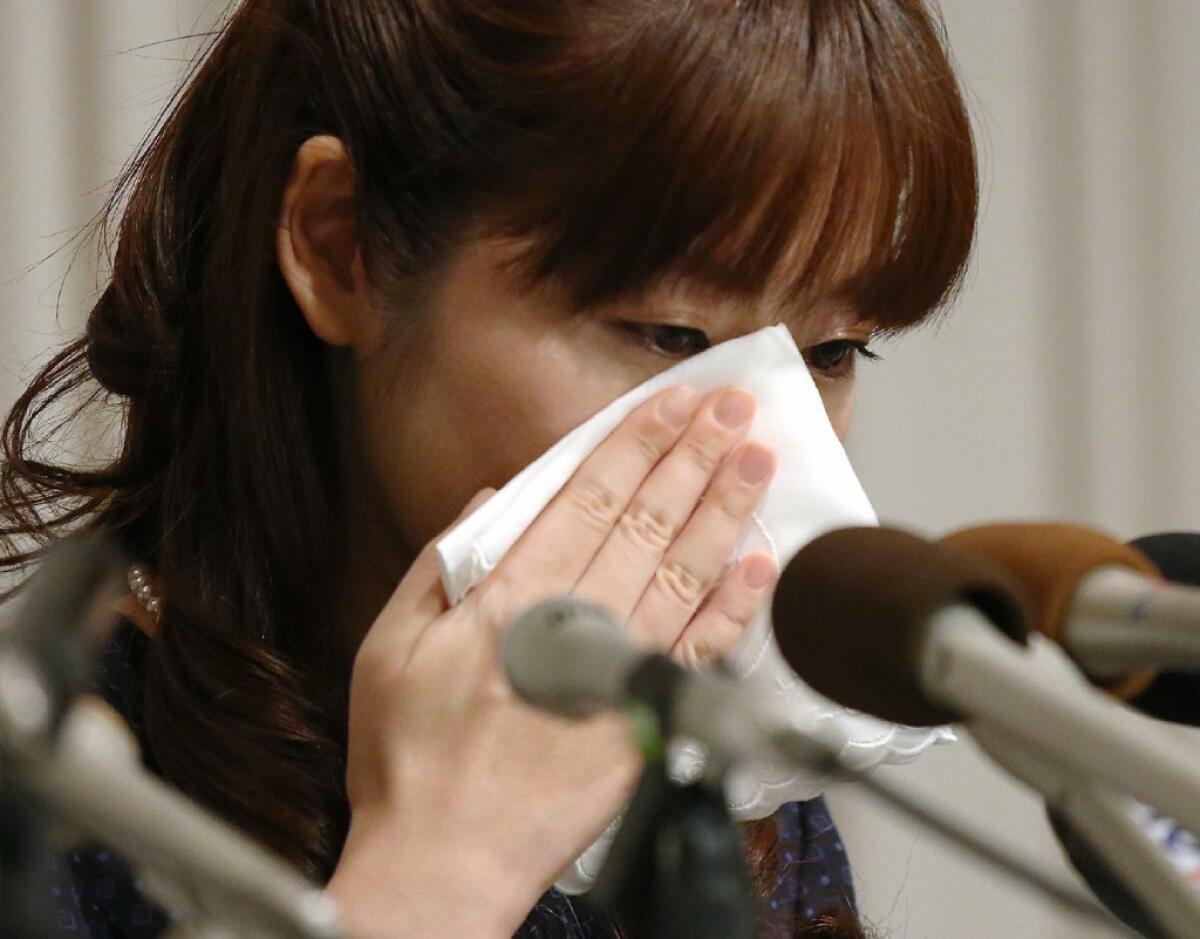Haruko Obokata says she created STAP stem cells “more than 200 times”

- Share via
The Japanese stem cell scientist who was accused of misconduct by her own research institution apologized Wednesday for making careless mistakes but insisted that her STAP stem cells are real.
Haruko Obokata told reporters at a news conference that she “produced the STAP cells successfully more than 200 times, and this is the truth,” according to the Yomiuri Shimbun’s Japan News.
The cells -- known formally as stimulus-triggered acquisition of pluripotency cells -- were described in a pair of studies published in January in the journal Nature. They purported to offer a straightforward method for making flexible, embryonic-like stem cells capable of developing into every type of cell in the body. What’s more, the tissues that could be grown from STAP cells would be genetically matched to patients, so they wouldn’t risk rejection by the immune system.
The studies were heralded as a breakthrough, but it didn’t take long for skeptics to come forward with doubts that the cells could be transformed in as little as 30 minutes by soaking them in an acid bath. Then those doubts led to allegations that some of the images used in the study were copied from other papers, and that some of the text had been plagiarized too. Making matters worse was the fact that none of the research labs that tried to replicate the results were having any success.
Even Teruhiko Wakayama, a senior author of one of the STAP studies and co-author of another, called for the papers to be withdrawn until the results could be independently verified. Nature is reviewing the studies but hasn’t decided whether they should be retracted.
Last week, the research institute where Obokata works said its investigators concluded that the STAP studies contained falsified and maniuplated data in order to make the results appear better than they actually were. The institute, known as RIKEN, said it would ask that one of the papers be withdrawn.
As expected, Obokata said Wednesday that she had filed an appeal to RIKEN, asking that the institute reconsider its findings. She said she was not given a fair shot to answer the all the criticisms about her work and got only once chance to speak with the investigative panel, according to the Japan Times.
In her appeal, Obokata said one of the images that was judged to be a fabrication was included in one of the Nature studies accidentally. She said another image that was modified was merely enhanced but not falsified, the Japan Times reported.
“There was no deceptive motive in my completing these articles,” Japan News quoted her as saying.
The news conference at an Osaka hotel was Obokata’s first public appearance since the scandal broke. She began by apologizing for her “carelessness, ignorance and immaturity” in writing up her STAP cell research results, according to Japan News.
After reading a prepared statement, Obokata fielded questions from reporters for about two hours. In one response, she said she made STAP cells more than 200 times.
“If anyone wants to watch me create STAP cells, I’ll go anywhere,” she said, according to the Wall Street Journal. Later, she expressed confidence that other researchers would be able to reproduce her results.
She also insisted that it would be wrong for Nature to retract the papers. “As long as the conclusions are accurate, I believe it is right to announce them to the world,” the Wall Street Journal quoted her as saying.
The controversy has taken a toll on the 30-year-old biochemist, who became an overnight sensation in Japan after her research garnered worldwide attention. One of her attorneys said she was admitted to a hospital Monday because of “her poor physical and mental condition,” according to the Japan Times.
At one point in the news conference, Obokata teared up as she contemplated the scandal’s toll on her career, the Wall Street Journal reported.
“If there is a future for me as a researcher, I would like to continue taking part in researching STAP technology to develop something that will be useful to others,” she said.
Also on Wednesday, RIKEN announced that it had taken additional steps to prevent cases like this in the future. Among them are the establishment of a new “office for internal reform” and the creation of an expert committee that will offer guidance on ways to keep closer tabs on researchers.
If you’re interested in the latest scientific and medical studies, you like the things I write about. Follow me on Twitter and “like” Los Angeles Times Science & Health on Facebook.





